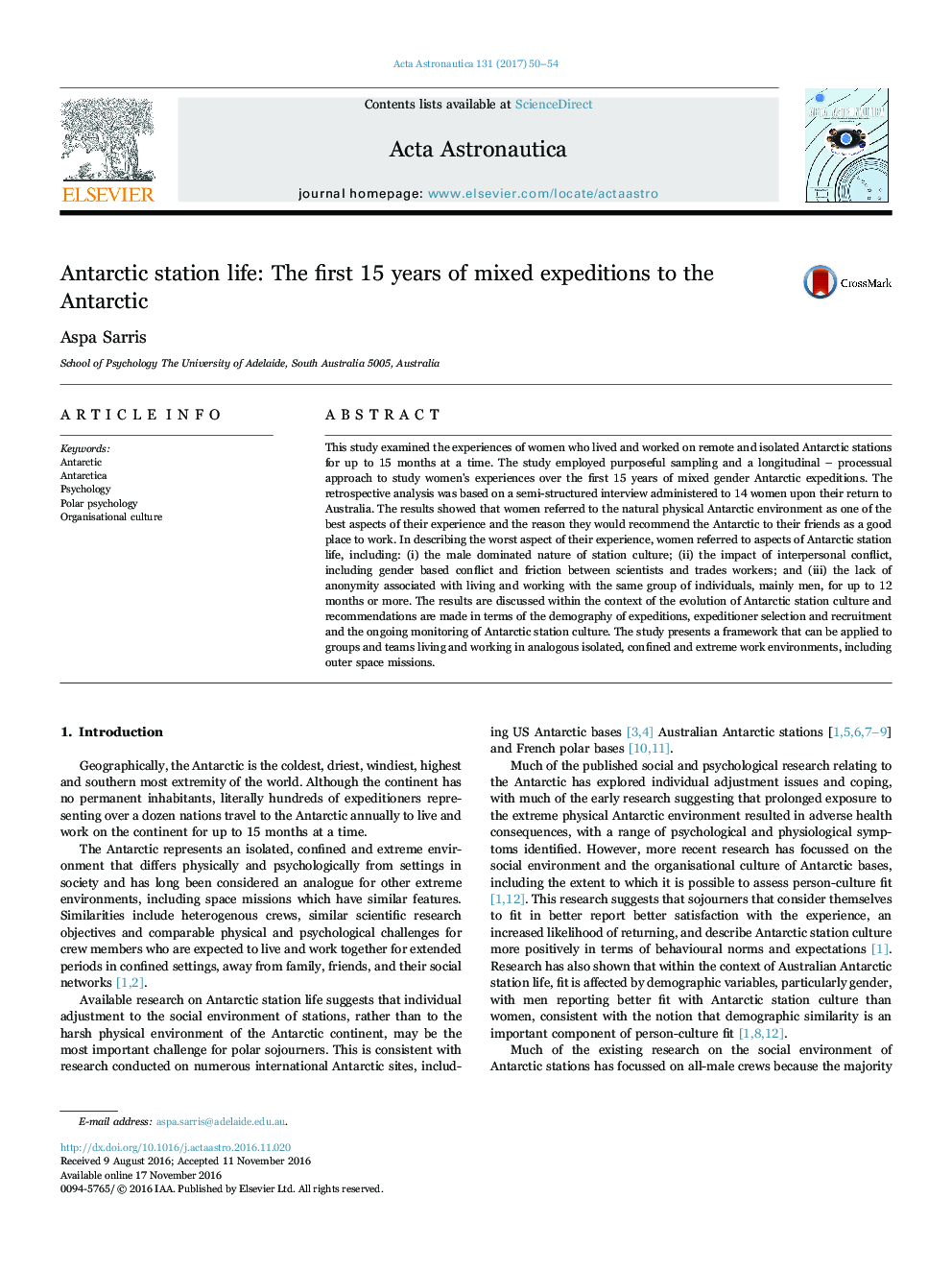| Article ID | Journal | Published Year | Pages | File Type |
|---|---|---|---|---|
| 5472197 | Acta Astronautica | 2017 | 5 Pages |
Abstract
This study examined the experiences of women who lived and worked on remote and isolated Antarctic stations for up to 15 months at a time. The study employed purposeful sampling and a longitudinal - processual approach to study women's experiences over the first 15 years of mixed gender Antarctic expeditions. The retrospective analysis was based on a semi-structured interview administered to 14 women upon their return to Australia. The results showed that women referred to the natural physical Antarctic environment as one of the best aspects of their experience and the reason they would recommend the Antarctic to their friends as a good place to work. In describing the worst aspect of their experience, women referred to aspects of Antarctic station life, including: (i) the male dominated nature of station culture; (ii) the impact of interpersonal conflict, including gender based conflict and friction between scientists and trades workers; and (iii) the lack of anonymity associated with living and working with the same group of individuals, mainly men, for up to 12 months or more. The results are discussed within the context of the evolution of Antarctic station culture and recommendations are made in terms of the demography of expeditions, expeditioner selection and recruitment and the ongoing monitoring of Antarctic station culture. The study presents a framework that can be applied to groups and teams living and working in analogous isolated, confined and extreme work environments, including outer space missions.
Related Topics
Physical Sciences and Engineering
Engineering
Aerospace Engineering
Authors
Aspa Sarris,
